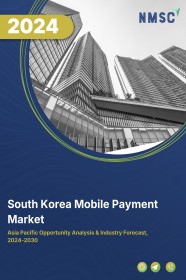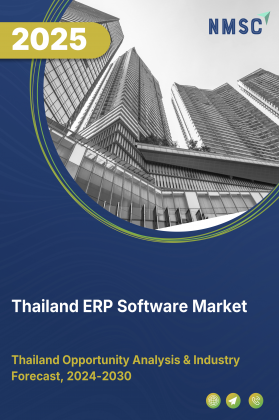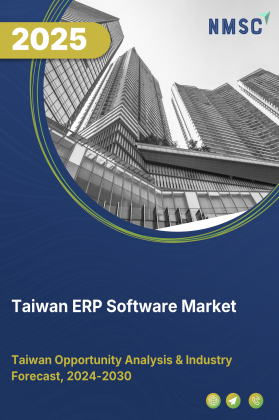
South Korea Mobile Payment Market by Age (Generation Z, Millennials, Generation X, and Baby Boomers), by Payment Type (Proximity and Remote), and by Application (Money Transfers, Merchandise Purchases, Bill Payments, Airtime Top-ups, Ticketing, and Others) – Opportunity Analysis and Industry Forecast, 2024–2030
Industry: ICT & Media | Publish Date: 06-Jun-2025 | No of Pages: 111 | No. of Tables: 79 | No. of Figures: 44 | Format: PDF | Report Code : IC2495
South Korea Mobile Payment Market Overview
The South Korea Mobile Payment Market size was valued at USD 1.22 billion in 2023, and is predicted to reach USD 4.79 billion by 2030, with a CAGR of 20.1% from 2024 to 2030. The mobile payment system, also termed as money transfer, mobile money, m-payments, electronic payments, and digital payments, facilitates financial transactions using mobile devices such as smartphones, tablets, and wearables.
These transactions are facilitated through mobile apps or various methods such as proximity and remote transactions. Mobile payment systems encompass diverse types such as mobile wallets, mobile banking apps, and online payment services such as PayPal, Venmo, and Google Pay.
Employing technologies such as SMS, near-field communication (NFC), quick response (QR) codes, and others, these systems ensure seamless transactions while employing robust security measures including encryption and biometric authentication to safeguard personal and financial data.
Appreciated for their convenience, speed, security, and integration with other financial tools, mobile payment systems witness widespread adoption. Moreover, users can configure payment apps to automatically settle bills, such as utility or credit card bills, ensuring efficient financial management and preventing late payments.
Rise of Cross-Border Transactions Propels the South Korea Mobile Payment Market
The surge in cross-border transactions serves as a significant catalyst propelling market expansion within the mobile payment market in the country. With globalization on the rise, businesses and individuals are increasingly involved in international trade, commerce, and remittances.
Mobile payment solutions offer a convenient, cost-effective, cybersecurity and efficient way to conduct cross-border transactions, facilitating seamless money transfers and payments across borders. With mobile payment platforms increasingly supporting multi-currency transactions and providing competitive exchange rates, users can transfer funds internationally with ease, bypassing traditional banking intermediaries and their associated fees and delays.
Additionally, the integration of innovative technologies such as blockchain bolsters the security, transparency, and speed of cross-border payments, further stimulating adoption. As cross-border transactions continue to proliferate in volume and complexity, mobile payment providers have the opportunity to expand their global footprint, driving market growth, and promoting financial inclusion on a global scale.
Rising Fintech and Digital Banking Services Drives the South Korea Mobile Payment Market
The surge of fintech and digital banking fuels the South Korea mobile payment market expansion. Fintech innovations and digital banking services provide streamlined financial solutions accessible via mobile devices, democratizing financial services.
Consumers can conveniently manage their finances, execute payments, and conduct transactions from their smartphones. Integration of mobile payment features within fintech apps and digital banking platforms enhances user experience with seamless access to payment options and account management.
Fintech firms and digital banks often pioneer payment technologies such as peer-to-peer transfers and contactless payments, cybersecurity driving adoption and shaping industry standards. As consumers increasingly adopt fintech and digital banking, the mobile payment market expands, offering more choice and accessibility in the digital economy.
Resistance from Traditional Financial Institutions Restrains the South Korea Mobile Payment Market Growth
Resistance from traditional financial institutions poses a significant obstacle to the South Korea mobile payment market growth. Established banks and financial entities may perceive mobile payment solutions as disruptive to their existing business models, leading to reluctance in supporting or promoting these innovative technologies.
This resistance arises from concerns about potential revenue cannibalization, regulatory complexities, and the perceived threat of losing control over payment infrastructures. Consequently, traditional financial institutions may hesitate to invest in mobile payment initiatives or collaborate with fintech startups and mobile payment providers, impeding the development and adoption of innovative payment solutions. Overcoming this resistance requires collaboration, regulatory alignment, and education to demonstrate the benefits of mobile payments for both financial institutions and consumers, thus unlocking the full potential of the South Korea mobile payment market.
The Emergence of Real-Time Payment Creates Opportunities in the South Korea Mobile Payment Market
The emergence of real-time payments offers significant opportunities for the mobile payment market, ushering in a new era of speed and convenience in fund transfers in the country. Real-time payment systems enable instantaneous transactions between parties, providing unmatched efficiency and ease of use.
This advancement paves the way for mobile payment providers to offer seamless experiences to consumers and businesses alike. With real-time payments, transactions can be settled instantly, whether it's splitting bills with friends, making retail purchases, or transferring funds between accounts.
Furthermore, the integration of real-time payment capabilities into various sectors, including e-commerce, peer-to-peer lending, and on-demand services, drives innovation and expands the mobile payment ecosystem. In essence, the rise of real-time payments transforms payment processing and creates fertile ground for growth and innovation in the mobile payment market.
Competitive Landscape
Various market players operating in the South Korea mobile payment industry include Alphabet, Inc. (Google), Alibaba Group Holdings Limited, Amazon.com, Inc., Apple, Inc., PayPal Holdings, Inc., Visa, Inc., Tencent Holdings Limited (WeChat), MasterCard International, Inc., Samsung Electronics Co. Ltd., Block, Inc., and others. These key players have adopted various strategies to strengthen their market share.
South Korea Mobile Payment Market Key Segments
By Age
-
Generation Z
-
Millennials
-
Generation X
-
Baby Boomers
By Payment Type
-
Proximity
-
Near-Field Communication (NFC)
-
Quick Response (QR) Code Payments
-
-
Remote
-
Internet Payments
-
SMS/Direct Carrier Billing
-
By Application
-
Money Transfers
-
Merchandise Purchases
-
Bill Payments
-
Airtime Top-ups
-
Ticketing
-
Others
REPORT SCOPE AND SEGMENTATION:
|
Parameters |
Details |
|
Market Size in 2023 |
USD 1.22 Billion |
|
Revenue Forecast in 2030 |
USD 4.79 Billion |
|
Growth Rate |
CAGR of 20.1% from 2024 to 2030 |
|
Analysis Period |
2023–2030 |
|
Base Year Considered |
2023 |
|
Forecast Period |
2024–2030 |
|
Market Size Estimation |
Billion (USD) |
|
Growth Factors |
|
|
Companies Profiled |
10 |
|
Market Share |
Available for 10 companies |
|
Customization Scope |
Free customization (equivalent up to 80 working hours of analysts) after purchase. Addition or alteration to country, regional, and segment scope. |
|
Pricing and Purchase Options |
Avail customized purchase options to meet your exact research needs. |
KEY PLAYERS
-
Alphabet, Inc. (Google)
-
Alibaba Group Holdings Limited
-
Amazon.com, Inc.
-
Apple, Inc.
-
PayPal Holdings, Inc.
-
Visa, Inc.
-
Tencent Holdings Limited (WeChat)
-
MasterCard International, Inc.
-
Samsung Electronics Co. Ltd.
-
Block, Inc.




















 Speak to Our Analyst
Speak to Our Analyst

























